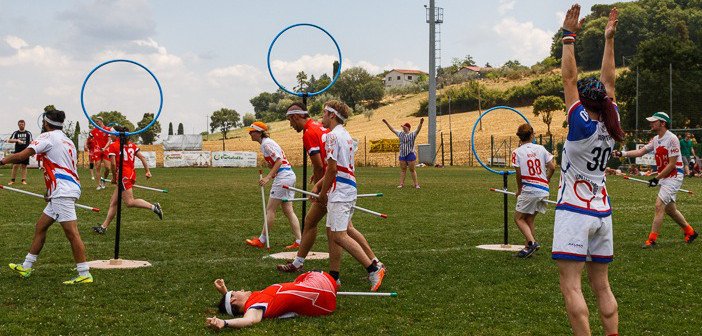The Lit Review |36| Man Booker Longlist
Man Booker Long list
The long list for the Man Booker Prize has been released. This is the second year that the award has acknowledged writers from all nationalities, writing in the English language. Anne Enright is the only Irish writer to have made the cut for her latest book, The Green Road. The list also includes former American literary agent, Bill Clegg, for his first novel Did You Ever Have a Family, which tells the story of a woman whose family is killed in a gas explosion (some light reading). It also includes Marlon James, who becomes the first ever Jamaican writer to have made the list for his book A Brief History of Seven Killings, along with Indian writer and journalist Anuradha Roy for her book Sleeping on Jupiter which tells the story of a woman reliving her experiences of childhood sexual abuse. The judges will mull over these excellent stories until they narrow them down to a shortlist, which will be announced in September, and the overall winner will be made public on October 13th.
The Man Booker Prize Podcast Series
The Man Booker Podcast is exactly that; it will record discussions all about the best of the world of books. The first episode is an interview with writer and critic, Viv Groskop, who discusses her love of the work of Richard Flanagan, Man Booker Prize-winning author of Narrow Road to the Deep North. The podcast is available here. The seven part series will guide listeners through the ins and outs of the prestigious award.
Not the Booker Prize
Ok, so it’s not the Booker Prize. But it is a full blown democratic vote; the reader and only the reader will decide who wins, and the winning author will claim the enviable prize of a Guardian mug (minus teabag). All you have to do is nominate two stories and write a short review of one, and post it in the comments here.
Children’s Literature Addresses Dementia
Losing a grandparent to dementia can be a very traumatic time for young people, who in some cases don’t have the information or an awareness of what the illness means for their loved one. To mark Dementia World Awareness Month in September, a group of Australian children’s writers are working together to promote their beautiful and important stories which educate young people and raise awareness of dementia and the impact this can have on families and children.
Tiger Fringe Festival

The Tiger Fringe Dublin has officially launched. The festival is celebrating its 21st birthday this year and has much to offer. One of the headlines on the programme is Scotch and Soda, a strange blend of circus performance and sound. Kim Noble’s production You’re Not Alone looks at male loneliness, and will reach out to its audience for answers. To mark 21 years, the festival will stage a bizarre project where a group of 21 year olds will live in an installation, like lab rats.
This year hosts a strong comedy line up, with shows performed by the hilarious Foil, Arms and Hog and David O’Doherty, amongst others. Seán Kennedy will debut at the festival this year with his stunning performance of Boy. The multi-award winning Siren Productions, will premier their latest production, GROUNDED. Abbey Theatre Literary Team at the Irish Writers Centre for a series of curated workshops at the Abbey Theatre Playwrights Hub.
A story telling will take place in the Speigeltent, courtesy of The Moth. An acrobatic spectacle will happen amongst the trees of Dublin’s Phoenix Park. Musical and spoken word performances will also take place. The festival will run from September 7th-20th. It’s going to be a great autumn, folks. Take a look at the full programme here.
Who was Ted Geisel?

Some intriguing insights into Dr Seuss are revealed in this article that some may not be aware of, including his real name of Theodore, or ‘Ted’ Geisel. He adopted the name ‘Seuss’ to accompany his 44 wacky children’s stories. Apparently Geisel and his wife would sign off on Christmas cards with the names Ted, Helen and Chrysanthemum Pearl, but the couple never had children. Chrysanthemum Pearl was a figment of his imagination.
His friend and neighbour, Judith Morgan, who wrote his biography with her husband following the release of Seuss’s acclaimed The Places You’ll Go, explains the context behind some of his well-known stories. After World War II, Seuss created Yertle the Turtle, a story about an over-ambitious chelonian who is a version of Hitler. The Sneeches is about opposition to anti-Semitism, and Horton Hears a Who is about speaking up for what you believe in.
Along with his acclaimed catalogue of children’s books, the writer also produced two books for adults, a live-action musical film and an Academy Award-winning documentary. During World War II, he drew more than 400 political cartoons for the leftist magazine PM.
What Pet Should I Get, which I wrote about a few months back, was discovered in 2013 by Seuss’ second wife and secretary. Although accompanied by some illustrations, the book was unfinished; hence, Random House’s Cathy Goldsmith, who worked with Seuss for a number of years, helped with finishing the book.
According to Morgan, before Seuss passed away she asked him to come up with a slogan for children. He wrote:
‘The best slogan I can think of to leave with the kids of the U.S.A. would be: We can . . . and we’ve got to . . . do better than this.’ He then reconsidered and left out ‘with the kids’, addressing, not just ‘the kids’ but all of us. I think we can do better too, Ted.
Kitchen Table Novels

In the introduction to Haruki Murakami’s latest Wind/Pinball: Two Novels he describes in earnest, and with great modesty, the moment he became a novelist and his life before he became a full time writer, and the process of writing for the very first time. He writes of these two books that are ‘closer to a novella than a novel.’ His ‘kitchen table novels’, as he refers to them, were an attempt at writing, late at night, after working long hours in his jazz bar in Tokyo. Attempting to create ideas with no previous experience of writing, he describes the painstaking process of writing the first of the two novels Hear the Wind Sing and says ‘It was a big mistake to assume that a guy like me who had never written anything in his life could spin something brilliant right off the bat.’
Murakami explains how he ditched the idea that he needed to write something big and powerful, and decided to translate the work into English. At the time his skills were rather basic; however, this allowed for the story to become more simple, less complex, short and honest. ‘I learnt that there was no need for a lot of difficult words – I didn’t have to try to impress people with beautiful turns of phrase. In the process, inevitably, a new style of Japanese emerged. The style that would be mine. A style I myself had discovered.’
Anyway, I won’t ruin this lovely excerpt; read it yourself and decide if you love him as much as I do.
Munster Poetry Mentorship
I realise I’m cutting it fine, as the closing date is August 1st. But if you are a poet, from the region of Munster, and you wish to be a mentee, then take a look at the Munster Poetry Mentorship. The Munster native must have at least one collection of poetry published, but no more than two. The winner will be mentored over the next year while preparing their next book. There is also a call out for mentors, who should be recognised as critically acclaimed and residing in Munster. Your job will be to advise your protégée in creating a new masterpiece. Full details here.
Kind of Quidditch

So, apparently France has beaten Britain in the European Quidditch Games. The glorious sport, played by wizards in J.K. Rowling’s Harry Potter series, is now a real life, competitive game. If you look at this picture, it looks like a lot of sportspeople running around with batons stuck between their legs. Unless the players have real flying broomsticks, and are trying to catch a golden ball with wings, then it doesn’t count.

